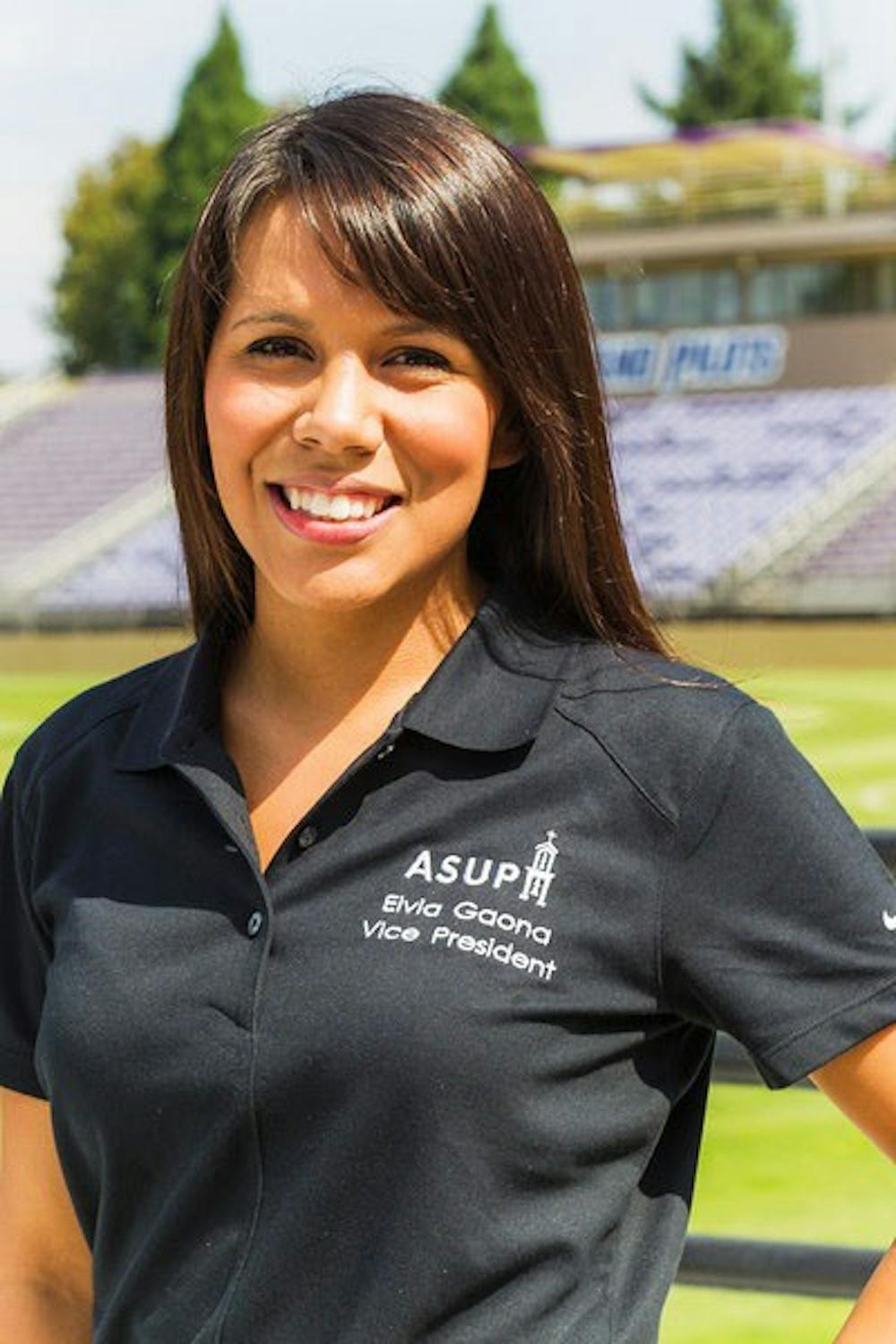Elvia Gaona |
I chose to come to the University of Portland primarily because of the community and welcoming environment I experienced when I visited the campus. However, the more time I have spent at the University, the more I have come to realize that I don’t fit in. As I walked up the Franz steps to my first few classes as a Pilot, I couldn’t help but to notice that there weren’t many other students of color on campus, or in my classes. As I attempted to make friends and introduce myself to other students I was frequently asked, “What are you?” My response? I am a human. I identify myself as Mexican and Latina. After this I was usually asked if my parents speak English or what type of Mexican food I had for dinner each night.
Last year, I was called a “dirty Mexican.” This year, I have heard UP students use the word “beaner” well over 5 times.
Being a “dirty Mexican,” lazy, unintelligent, undocumented, mustaches, ponchos, sombreros and not being able to speak English are all stereotypes of Mexican heritage and do not define Mexican culture.
Mexico, like most of Latin and South America, is a diverse state of “mestizos” -- individuals of mixed European, Native American and indigenous cultures. Many traditions, practices and garments come from the diverse background and ancestry of modern-day Latin American culture and civilization. When individuals select one aspect of Mexican culture to represent an entire nation, I am offended and hurt -- that is cultural appropriation. When individuals choose to dress up as “Mexicans,” my cultural diversity and personal identity is displaced with vulgarity, ignorance and humor. By dressing up as Mexican, my character and struggles to earn a place in society are dehumanized and rendered invisible. I am not a racist caricature nor do I live a primitive lifestyle. I am a human with dignity.
The Mexican costumes at the UP Men’s basketball game last week compressed Mexican culture without recognizing the complexity and intricacy of the heritage. Still, some students don’t understand why it is offensive. If a group of ladies from Mehling Hall wore a hijab and attended a sporting event, would that be celebrating culture? If a group of colored students painted their bodies white and wore kilts like the Villa Maria Drum Squad for a day, would that be humorous? What if a group of students wore kimonos and chanted swear words in Japanese, does that embrace diversity?
My Mexican heritage and culture is not a costume. It is my identity.
Elvia Gaona is a junior political science major. She can be reached at gaonaman15@up.edu.







